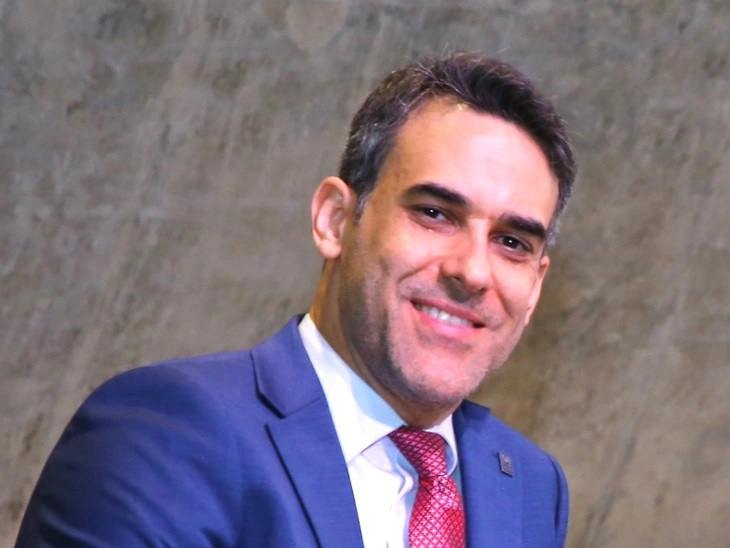
 Cop30
Cop30
T&B Petroleum/Press Office ANP

The ANP is participating in the 30th United Nations (UN) Climate Change Conference (COP30), taking place from November 10 to 21 in Belém, Pará. The Agency is represented by its Director-General, Artur Watt (pictured), who is part of the Ministry of Mines and Energy (MME) delegation. He will speak at the panel “Biomethane in the Fuel of the Future” on November 15 at 11 a.m., in the Blue Zone.
In addition to the Director-General, the acting Superintendent of Technology and Environment at ANP, Mariana França, will join the panel “Energy That Is Measured Is Energy That Evolves: The Emissions Inventory from Downstream to Upstream,” also in the Blue Zone, on November 14 from 4 p.m. to 5 p.m.
The ANP’s participation in COP30 aligns with the Agency’s essential role in advancing Brazil’s energy transition.
The ANP is implementing several initiatives aimed at strengthening the transition to a low-carbon economy, promoting energy security, and supporting Brazil’s commitments under the Paris Agreement. The Agency seeks innovation and balance between economic development and environmental preservation—principles at the core of COP30 discussions.
Below are some of these initiatives:
Biofuels: ANP defines technical specifications, establishes standards, and oversees compliance with regulations applicable to both “traditional” biofuels (ethanol, biodiesel, and biomethane) and advanced biofuels such as renewable diesel and SAF (sustainable aviation fuel).
Future Fuel Law (Law 14,993/2024): The Agency is regulating several provisions of the law, which aims to integrate different initiatives to increase energy efficiency, promote sustainable fuels, and develop new technologies for the transport sector.
Among the ANP’s responsibilities is the regulation of carbon capture and storage (CCS) activities. In 2024, the ANP published the Report on the Implementation of the CCUS Regulatory Framework, a reference document that supports the Agency’s preparation for its new responsibilities in this area. Furthermore, the Board has approved the application of experimental regulation for CCS projects, ensuring legal certainty for the development of these activities while the full regulatory framework is finalized.
The Future Fuel Law also created national programs for biomethane, renewable diesel, and sustainable aviation fuel (SAF), expanding the Agency’s role in regulating low-carbon fuels and strengthening the country’s commitment to sustainable mobility.
Biomethane Mandate: In addition to the Future Fuel Law, Decree No. 12,614/2025 regulated the National Decarbonization Program for Natural Gas Producers and Importers and the Biomethane Incentive Program. Among other responsibilities, ANP must define procedures for certification and tracking of the Biomethane Guarantee of Origin Certificate (CGOB), as well as establish and verify compliance with individual targets. The topic is currently undergoing public consultation and hearings.
RenovaBio: The Agency is responsible for operating RenovaBio, Brazil’s National Biofuels Policy. The program promotes the decarbonization of the national energy matrix through Decarbonization Credits (CBIOs). This initiative directly contributes to emissions reduction and to meeting Brazil’s climate targets.
Hydrogen: Law 14,948/2024 established the national legal framework for low-carbon hydrogen and assigned regulatory responsibilities to ANP. The Agency has been actively participating in discussions on the new legal and regulatory structure for this emerging industry and is organizing itself to respond effectively to its various demands.
Support for Research and Innovation: ANP regulates the application of funds from the Research, Development, and Innovation (R&D&I) Clause, which requires operators of large producing fields to invest a percentage of their revenue in R&D. Since the clause was created, approximately R$ 50 billion (in real terms) has been invested, including more than R$ 15 billion in the last four years alone. The ANP has been directing efforts to ensure that investments prioritize areas such as hydrogen, biofuels, energy efficiency, and energy storage.
Decarbonization of E&P: The 2025–2026 Regulatory Agenda includes the development of a resolution on methane emissions reduction, whose preliminary study has undergone prior consultation; and the review of Resolution ANP No. 806/2020 (regarding flaring and losses), which is underway, reinforcing the Agency’s regulatory commitment to operational sustainability.
Reinforcing its commitment to increasingly sustainable oil and natural gas production, ANP also began, in 2024, to update its greenhouse gas (GHG) emissions panel, a tool that monitors and analyzes emissions in the oil and gas industry. New data were added, and existing information was improved. The data available on the platform can support studies and help inform public policies aimed at reducing GHG emissions. Broad transparency also encourages companies to proactively adopt measures to reduce emissions.
Additionally, in the most recent oil and gas exploration and production contracts, the requirement to minimize GHG emissions has already been incorporated into the “best practices” concept that guides all operator activities. Emissions intensity in Brazilian production is already significantly lower than that of major global producers. Even so, continuous and structured efforts are underway to achieve increasingly sustainable exploration and production.
Contact us